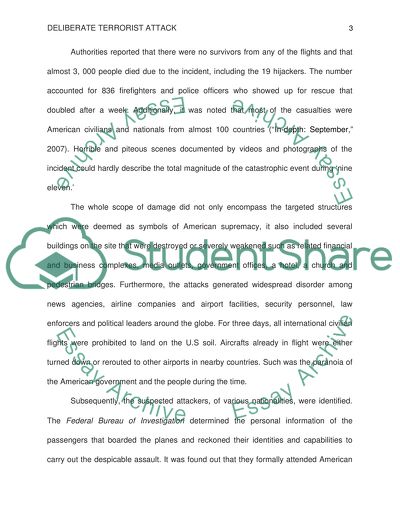Cite this document
(“September 11th Essay Example | Topics and Well Written Essays - 2500 words”, n.d.)
Retrieved from https://studentshare.org/environmental-studies/1412297-september
Retrieved from https://studentshare.org/environmental-studies/1412297-september
(September 11th Essay Example | Topics and Well Written Essays - 2500 Words)
https://studentshare.org/environmental-studies/1412297-september.
https://studentshare.org/environmental-studies/1412297-september.
“September 11th Essay Example | Topics and Well Written Essays - 2500 Words”, n.d. https://studentshare.org/environmental-studies/1412297-september.


